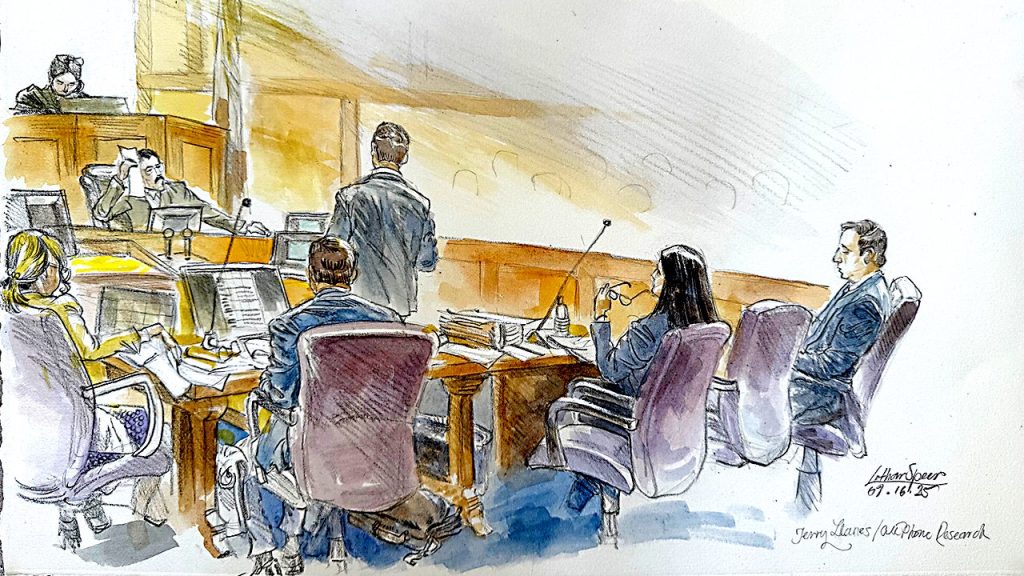Trump Assassination Attempt Trial: Prosecution Nears End as Explosive Evidence Unveiled
In the federal trial of Ryan Routh, accused of plotting to assassinate former President Donald Trump at his West Palm Beach golf club in 2024, prosecutors are bringing their case to a close with compelling testimony from law enforcement and forensic experts. Thursday’s proceedings revealed disturbing evidence of homemade explosive devices and weapons allegedly connected to Routh’s plan. As the prosecution prepares to rest its case, the self-representing defendant’s courtroom behavior and questioning tactics have created a unique dynamic in this high-profile trial.
ATF destructive device examiner Randy Walters provided critical testimony about a gray box recovered from the home of one of Routh’s acquaintances. The box contained alarming items: rat traps modified to trigger explosives, pipes, .50 caliber cartridges, and seven partially assembled firing mechanisms found in a bag. Walters emphasized to jurors that these components had “no other purpose other than being used as a weapon,” and described the “limitless” ways such traps could be improvised. When Routh cross-examined Walters about the legality of possessing these items individually, Walters acknowledged most pieces alone weren’t illegal, but pointed out that as a convicted felon, Routh was prohibited from possessing ammunition—a significant legal distinction that strengthened the prosecution’s case.
The courtroom atmosphere intensified when FBI Special Agent Nicholas Schnelle presented the Chinese-made semiautomatic rifle prosecutors claim Routh carried onto Trump’s golf course. Jurors leaned forward, studying the weapon carefully as testimony continued through the afternoon. During cross-examination, Routh challenged Schnelle’s knowledge of the weapon’s capabilities, asking, “So, you honestly don’t know it’s semiautomatic or fully?” after the agent admitted he hadn’t test-fired the rifle. This exchange highlighted Routh’s strategy of attempting to create doubt about the prosecution’s evidence while simultaneously revealing his familiarity with firearms—a potentially risky approach for his defense.
Routh’s self-representation has created unusual moments throughout the trial. His courtroom demeanor has been marked by highlighting documents, audible sighing, and frequent apologies to witnesses. In one exchange with a Miami-based agent, he casually remarked, “At least you didn’t have to drive far,” while at other times telling witnesses their answers should be “just common sense.” His tendency to continue speaking after prosecutors’ objections has repeatedly prompted Judge Aileen Cannon to cut him off. These behaviors paint a picture of an unconventional defendant who alternates between attempting to humanize himself to the jury and challenging the prosecution’s case, often in ways that legal experts might consider counterproductive.
The prosecution’s methodical presentation of evidence—from explosive components to firearms, phone extractions, and DNA testimony earlier in the week—has built a comprehensive case against Routh. The Chinese-made rifle, in particular, represents a pivotal piece of evidence connecting Routh to the alleged assassination attempt at Trump’s golf course. As jurors examined this weapon and other exhibits, the gravity of the charges against Routh became increasingly apparent. The prosecution appears to have constructed a narrative that links Routh’s intentions, preparations, and actions into a coherent timeline leading up to his arrest near Trump’s property.
With the court scheduled to adjourn Thursday afternoon before holding a charge conference with counsel, the prosecution is expected to rest its case on Friday. The defense has been instructed to have its witnesses ready, signaling the trial is moving into its final phase. As Routh prepares to present his defense, questions remain about his strategy and whether he will take the stand in his own defense. The unusual spectacle of a defendant representing himself in such a high-profile case involving an alleged assassination attempt against a former president and current presidential candidate continues to add layers of complexity to an already extraordinary trial that has captured national attention.


